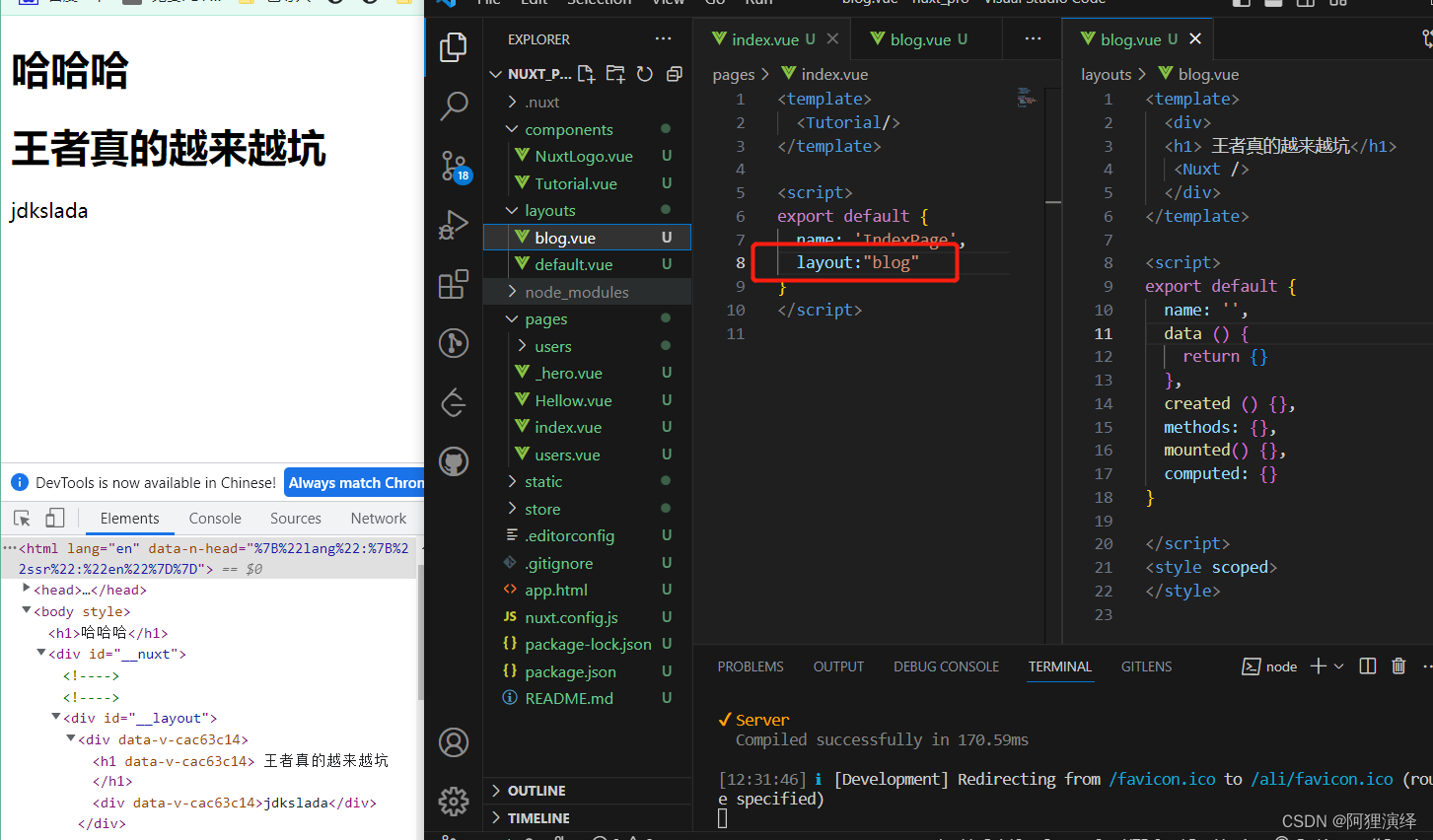目录
interface 重名 、重合
任意属性 [propName: string]
可选 ? 操作符、 readonly 只读
interface 接口继承
interface 定义函数类型
在 ts 中,定义对象的方式要用关键字 interface(接口),我的理解是使用interface来定义一种约束,让数据的结构满足约束的格式。
定义方式如下:
//必须与接口保持一致, 使用接口约束的时候不能多一个属性也不能少一个属性
interface Person {b:string,a:string
}
// 这样写是会报错的 因为我们在person定义了a,b但是对象里面缺少b属性
const person:Person = {a:"ls"
}interface 重名 、重合
// 不能多属性、不能少属性
interface Axxsxs {name: string,age: number
}
// 重名重合
interface Axxsxs {sex: number
}
// 正确定义方式
let a: Axxsxs = {name: 'lx',age: 18,sex: 2
}任意属性 [propName: string]
interface 任意 key
需要注意的是,一旦定义了任意属性,那么确定属性和可选属性的类型都必须是它的类型的子集:
// 只有 name、age 需要校验
interface Axxsxs {name: string,age: number,// 索引签名[propName: string]: any
}/*1、例子中看到接口中并没有定义a,b但是并没有报错2、因为我们定义了[propName: string]: any;3、允许添加新的任意属性
*/let a: Axxsxs = {name: 'lx',age: 18,a: 1,b: 2
}可选 ? 操作符、 readonly 只读
interface Axxsxs {name: string,age?: number, // 可选 readonly cd: () =>boolean // 设置只读
}let a: Axxsxs = {name: 'lx',age: 18, // 可以写可以不写 cd: () => {return false}
}
interface 接口继承
interface Axxsxs extends B {name: string,age?: number, // 可选 readonly cd: () => boolean // 设置只读
}
interface B {id: string
}
let a: Axxsxs = {id: '1233',name: 'lx',age: 18, // 可以写可以不写 cd: () => {return false}
}interface 定义函数类型
interface Fn {// 参数name为string、返回值是 number类型的数组 (name:string): number[]
}
const fn:Fn = function(name:string) {return [1]
}




